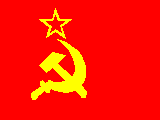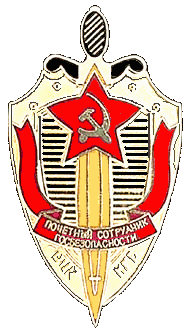





 DOMESTIC SECURITY AND THE COMMITTEE FOR STATE SECURITY
DOMESTIC SECURITY AND THE COMMITTEE FOR STATE SECURITYThe KGB had a variety of domestic security functions. It was empowered by law to arrest and investigate individuals for certain types of political and economic crimes. It was also responsible for censorship, propaganda, and the protection of state and military secrets.
In carrying out its task of ensuring state security, the KGB was empowered by law to uncover and investigate certain political crimes set forth in the Russian Republic's Code of Criminal Procedure and the criminal codes of other republics. According to the Russian Republic's Code of Criminal Procedure, which came into force in 1960 and has been revised several times since then, the KGB had the authority, together with the Procuracy, to investigate the political crimes of treason, espionage, terrorism, sabotage, anti-Soviet agitation and propaganda, divulgence of state secrets, smuggling, illegal exit abroad, and illegal entry into the Soviet Union. In addition, the KGB was empowered, along with the Procuracy and the MVD, to investigate the following economic crimes: stealing of state property by appropriation or embezzlement or by abuse of official position and stealing of state property or socialist property (see Glossary) on an especially large scale.
In carrying out arrests and investigations for these crimes, the KGB was subject to specific rules that were set forth in the Code of Criminal Procedure. The Procuracy was charged with ensuring that these rules were observed. In practice, the Procuracy had little authority over the KGB, and the latter was permitted to circumvent the regulations whenever politically expedient. In 1988 closing some of these loopholes was discussed, and legal experts called for a greater role for the Procuracy in protecting Soviet citizens from abuse by the investigatory organs. As of May 1989, however, few concrete changes had been publicized.
It is important to note that the KGB frequently enlisted the MVD and the Procuracy to instigate proceedings against political nonconformists on charges that did not fall under the KGB's purview. Dissidents were often charged for defaming the Soviet state and violating public order. Sometimes the KGB arranged to have them charged for ordinary crimes, such as hooliganism or drug abuse.
Data as of May 1989
